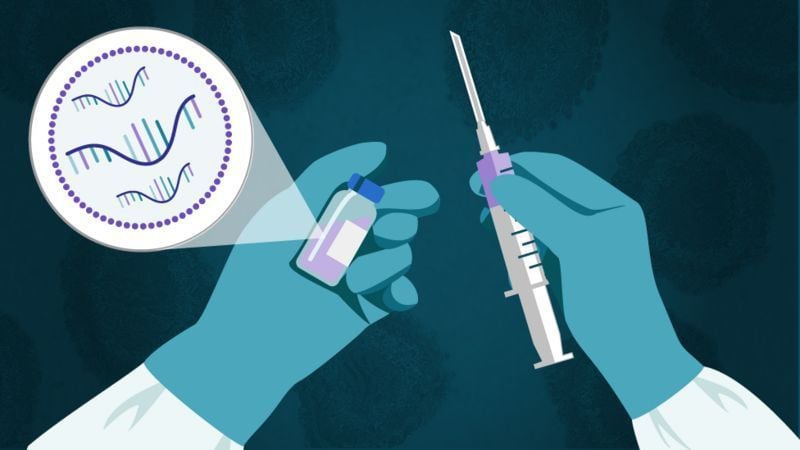Scientists Katalin Karikó and Drew Weissman received the 2023 Nobel Prize for Medicine this Monday.
According to the Karolinska Institute in Stockholm, which presents the prestigious award annually, Karikó and Weissman receive the award “for his discoveries about nucleoside base modifications that enabled the development of effective vaccines for Messenger RNA against covid-19″.
LOOK: Why Russia didn’t support its Armenian allies in Nagorno Karabakh and how this conflict changes the dynamics in the region
The institute emphasizes that the discoveries of the Hungarian scientist and the American researcher “were fundamental for the development of effective messenger RNA vaccines against covid-19 during the pandemic that began in early 2020”.
He also notes that through these groundbreaking discoveries, which fundamentally changed “the understanding of how mRNA interacts with our immune system,” Karikó and Weissman contributed in an unprecedented way to “vaccine development during one of the greatest threats to human health.” in modern times.” .
Karikó, who was born in Hungary in 1955, was one of the pioneering scientists in research into messenger RNA for the development of vaccines.
She also became the thirteenth woman in history to receive this recognition.
She is vice-president of the pharmaceutical company BioNTech, which developed – together with the company Pfizer – one of the main vaccines used to combat the covid-19 pandemic.
For this advancement, Karikó worked hand in hand with Weissman, who is currently an academic at the University of Pennsylvania.
What does messenger RNA consist of?
Messenger RNA is a molecule that appears when a stretch of DNA is copied and transports this information to the part of the cells where the proteins that make up our body will be manufactured.
RNA viruses (such as Sars-Cov-2, which was largely responsible for the Covid-19 pandemic, the common flu or dengue, among others) use the same mechanism to infect a human cell and produce copies of their own code genetic.
This is how they replicate in our body.
Most vaccines are made with a weakened virus or a fragment of it so that our immune system produces antibodies.
However, genetic vaccines, such as those developed based on advances by Karikó and Weissman, seek to allow the body itself to produce a virus protein without the need to inject it.

Why is the method so innovative?
Scientists create a synthetic messenger RNA in the laboratory, which contains a copy of part of the viral genetic code.
This mRNA will cause our cells to produce the virus’s characteristic protein and this will alert our immune system.
“This technique has some important advantages. First, security. By not using the virus, there is no danger of it causing infections in people with very low immunity, something that can happen with vaccines such as yellow fever or polio, for example. The mRNA vaccine is suitable for everyone,” Norbert Pardi, immunologist and professor at the University of Pennsylvania, in the United States, told BBC Mundo.
It is also a simpler technique than the others, as the RNA used is completely synthetic. Therefore, it is not necessary to maintain complex cell cultures or purification systems in laboratories,” he explains.
According to Pfizer, the use of laboratory-produced RNA speeds up vaccine production compared to conventional vaccines, which use weakened viruses, for example.
“Producing the right strain of a virus can be difficult and creating enough virus for thousands of doses can take months,” a company statement said.
“Because the production of an mRNA vaccine uses artificial methods, it can offer a more flexible approach to rapidly evolving pathogens and provide a faster response to large outbreaks or pandemics,” he says.
Source: Elcomercio
I am Jack Morton and I work in 24 News Recorder. I mostly cover world news and I have also authored 24 news recorder. I find this work highly interesting and it allows me to keep up with current events happening around the world.

:quality(75)/cloudfront-us-east-1.images.arcpublishing.com/elcomercio/227KJSEB2RBVDEPV4TU4OHUB2M.jpg)





